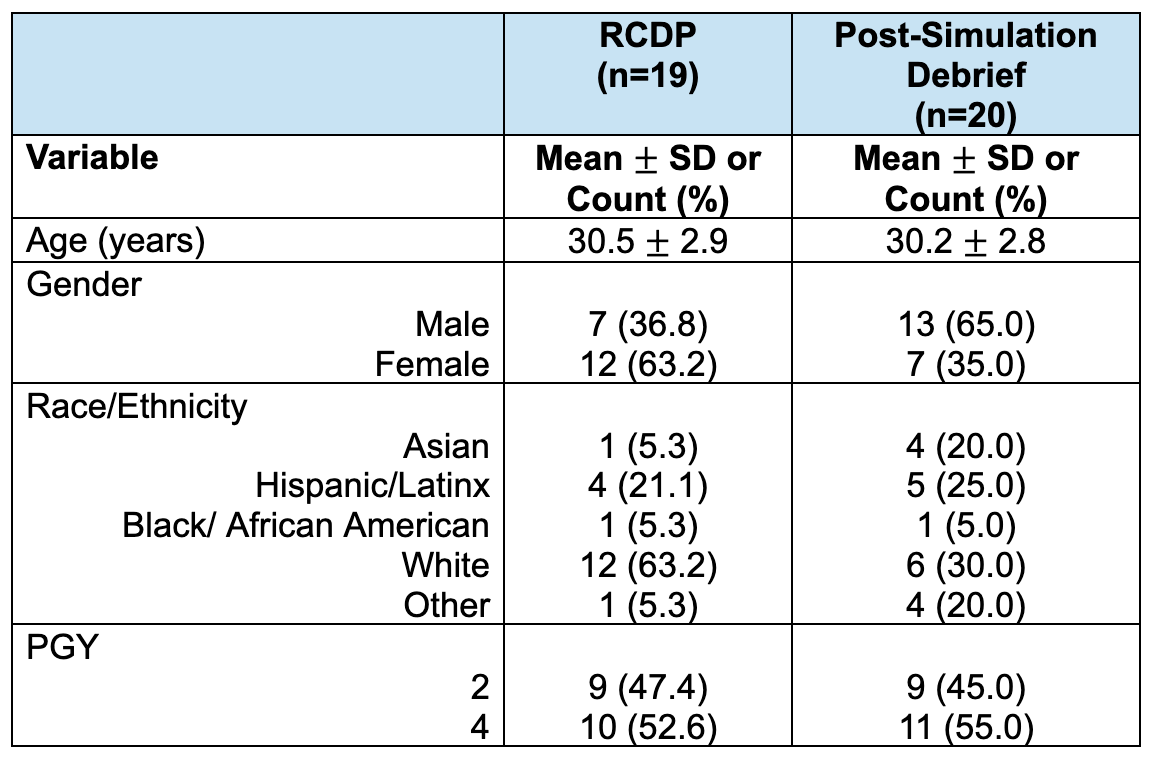Neonatal/Infant Resuscitation 2
Session: Neonatal/Infant Resuscitation 2
306 - Cognitive Load During Neonatal Resuscitation Program Training in the Emergency Department: Rapid Cycle Deliberate Practice versus Post-Simulation Debrief
Friday, April 25, 2025
5:30pm - 7:45pm HST
Publication Number: 306.4451
Mugil V. Shanmugam, Keck School of Medicine of the University of Southern California, Oak Park, CA, United States; Kathleen Tedesco, Children's Hospital Los Angeles, Los Angeles, CA, United States; Melissa L. Wilson, USC Keck School of Medicine, Los Angeles, CA, United States; Manoj Biniwale, Cedars Sinai Medical Center, Los Angeles, CA, United States; Fiona Wertheimer, Keck School of Medicine of USC/Los Angeles General Medical Center, Los Angeles, CA, United States

Mugil V. Shanmugam (he/him/his)
Undergraduate Student
Keck School of Medicine of the University of Southern California
Oak Park, California, United States
Presenting Author(s)
Background: Cognitive load theory helps inform simulation instructional design. When a learner’s working memory is overwhelmed, their ability to consolidate information is compromised. Two types of cognitive load have been described; intrinsic load, or memory burden from the task itself, and extrinsic load, attributed to teaching design and environmental factors. An ideal instructional simulation minimizes extrinsic load to promote optimal learning.
Objective: This study aimed to compare cognitive load between Rapid Cycle Deliberate Practice (RCDP) and post-simulation debrief when teaching Neonatal Resuscitation Program (NRP).
Design/Methods: This is a randomized controlled study at Los Angeles General Medical Center. Emergency Department residents with no prior NRP training were randomized into two groups. The intervention arm received NRP training via RCDP, while the control arm received training via post-simulation debrief, the current standard method of NRP training(8th edition). Participants completed a pre-training survey to assess their demographics, experience in, and confidence with resuscitation. Following the simulation training, they completed a survey assessing confidence and cognitive load. Cognitive load questions were modified from the Cognitive Load Assessment Scales in Simulation (CLAS-Sim) tool. Demographics and clinical characteristics are described, stratified by study group, using mean and standard deviation or count with frequency. All Likert scale variables were analyzed using Fisher’s Exact test.
Results: Thirty-nine residents completed NRP training and the post-training survey. Participants in the RCDP group reported clearer information and found the pace less of a negative factor compared to the control group. The control group showed a significant perception of unclear information and a higher reported extrinsic load. Additionally, 94.7% of the RCDP group strongly agreed that debriefing improved their resuscitation skills, compared to 70% in the control group.
Conclusion(s): Post-simulation debrief was associated with a higher extrinsic load which can have a negative impact on learning. The lower extrinsic load in the RCDP group, as evidenced by significantly clearer information, is likely related to the frequent repetition and feedback that is characteristic of this teaching method. Additionally, the difference between the groups’ opinions on pace and realism of training neared significance. Limitations include the sample size and variability between instructors, despite all being NRP instructors and using the same scenarios. Data collection is ongoing.
Table 1: Demographics of the Study Population

Table 2: Post-Training Survey Results
.png)

